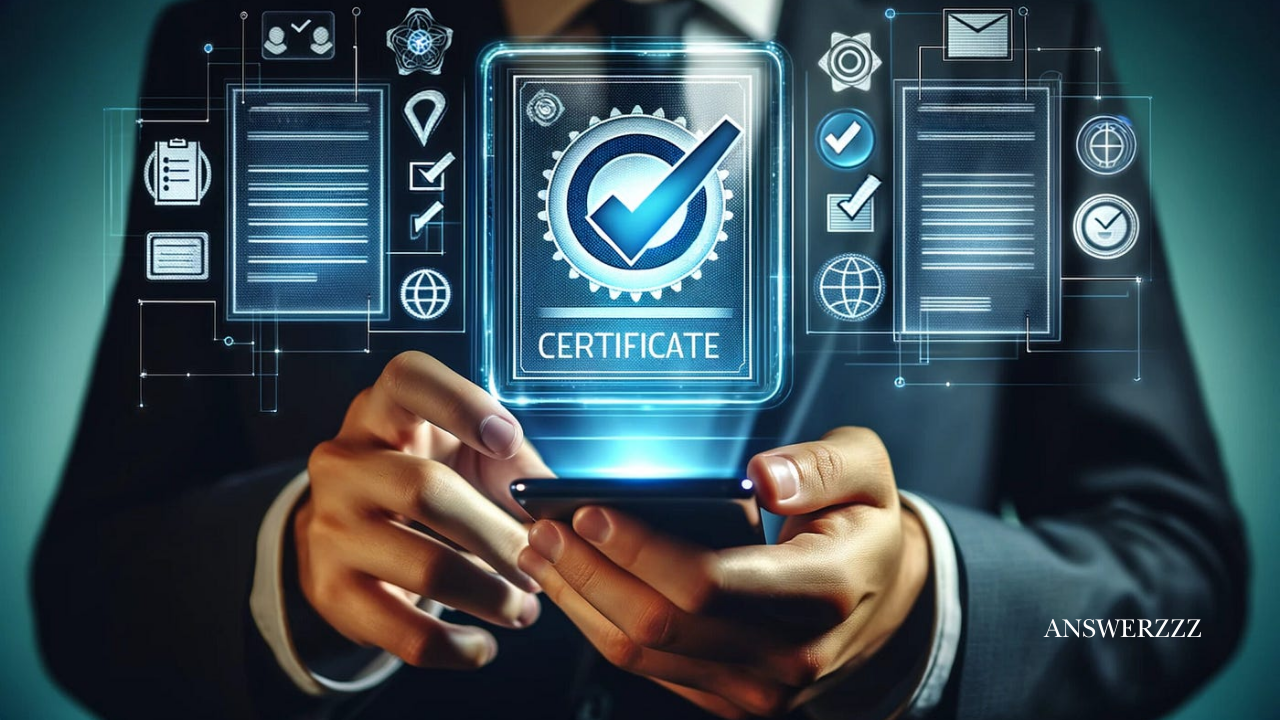The future of work is changing at an unprecedented rate, and 2025 is shaping up to be a pivotal year for career advancement. With the rise of new technologies, shifting societal expectations, and a more dynamic job market, it’s important to stay ahead of the curve and adopt strategies that will help you navigate the evolving professional landscape. Whether you’re aiming for a promotion, seeking a new job, or planning long-term career growth, the following tips will help you reach your professional goals in 2025.
1. Embrace Lifelong Learning

In 2025, the importance of continuous learning will only grow. Technology, economic shifts, and societal changes will keep pushing industries forward, making it essential to stay current with new skills, tools, and best practices. Some of the most in-demand skills will come from fields like artificial intelligence (AI), data analysis, cybersecurity, and renewable energy. Regardless of your industry, upskilling and reskilling will be key to staying competitive.
How to embrace lifelong learning:
- Online courses and certifications: Platforms like Coursera, edX, and LinkedIn Learning offer affordable, accessible courses on a wide range of topics.
- Industry-specific training: Look for certifications specific to your field, such as project management (PMP), digital marketing (Google Ads, HubSpot), or software development (AWS, Azure).
- Attend workshops and webinars: Live and virtual events provide a great opportunity to gain specialized knowledge and network with industry experts.
- Stay curious: Make it a habit to read articles, books, and research papers related to your field. Staying informed will not only keep you knowledgeable but also help you identify emerging trends.
2. Cultivate Digital Fluency
As digital tools and platforms become more ingrained in everyday work, digital fluency is no longer optional—it’s a requirement. By 2025, being proficient in tools such as collaboration software (Slack, Microsoft Teams), project management tools (Asana, Trello), and customer relationship management (CRM) systems (Salesforce, HubSpot) will be essential. If you’re not yet familiar with these technologies, now is the time to start learning.
Why digital fluency matters:
- Increased productivity: Digital tools enable faster communication, smoother collaboration, and easier management of projects, making you a more efficient team member.
- Remote work compatibility: As remote and hybrid work arrangements continue to rise, being adept with digital platforms will help you stay connected and productive regardless of location.
- Improved problem-solving: Digital skills give you access to data and analytics, allowing you to make better decisions and improve processes in your organization.
How to improve digital fluency:
- Master collaboration tools: Learn how to use video conferencing, shared document editors, and team chat apps effectively to communicate with colleagues.
- Adopt project management software: Get comfortable using digital tools to track your work, meet deadlines, and collaborate seamlessly.
- Explore automation: Understand how automation tools can streamline repetitive tasks in your workflow.
3. Build a Strong Personal Brand
In the digital age, your brand is more important than ever. It represents who you are professionally, how you communicate your skills, and how others perceive you. Building a strong personal brand in 2025 involves consistently managing your online presence, networking, and showcasing your expertise.
Why personal branding matters:
- Differentiation in a competitive job market: With automation and AI affecting many jobs, standing out will require you to be recognized for your unique value.
- Trust and credibility: A solid online presence can demonstrate thought leadership, expertise, and professionalism, which attracts potential employers, clients, or collaborators.
- Networking opportunities: An established personal brand opens the door for more connections and can lead to career advancement opportunities.
How to build your brand:
- Optimize your LinkedIn profile: Make sure your LinkedIn profile reflects your skills, experience, and accomplishments, as well as a compelling personal summary.
- Create and share valuable content: Whether through blog posts, social media updates, or videos, consistently share content that showcases your expertise and interests.
- Network both online and offline: Attend industry events, join online communities, and engage in conversations related to your field.
- Seek testimonials and recommendations: Ask colleagues or clients for endorsements that highlight your strengths.
4. Focus on Soft Skills Development
While technical expertise is crucial, soft skills—such as communication, adaptability, problem-solving, and emotional intelligence—will be the deciding factors in career success in 2025. As workplaces become more diverse and teams become more collaborative, the ability to build relationships, navigate conflict, and work with a variety of people will set you apart from others.
Why soft skills matter:
- Collaboration and teamwork: As companies embrace cross-functional teams, the ability to communicate effectively and work harmoniously with others is vital.
- Leadership potential: Soft skills are essential for those in leadership positions or aspiring to be in leadership roles. Emotional intelligence, empathy, and conflict resolution are key qualities that effective leaders need.
- Adaptability to change: In an era of constant change, the ability to quickly adjust to new technologies, workflows, or organizational shifts is crucial.
How to develop soft skills:
- Practice active listening: This helps improve communication and build rapport with colleagues.
- Seek feedback and act on it: Regular feedback can help you identify areas where you can improve.
- Join leadership programs: Participate in workshops or mentorship programs to enhance your leadership skills.
- Work on emotional intelligence (EQ): Practice being aware of your emotions and those of others to improve your interpersonal interactions.
5. Pursue a Growth Mindset
A growth mindset—the belief that skills and intelligence can be developed through hard work and dedication—will be a crucial trait for career advancement in 2025. People with a growth mindset are more likely to embrace challenges, persevere through setbacks, and continuously strive to improve themselves.
Why a growth mindset matters:
- Increased resilience: With technology and industries constantly evolving, setbacks and failures are inevitable. A growth mindset helps you bounce back faster.
- Willingness to take on new challenges: People with a growth mindset are more open to taking risks and tackling tasks outside of their comfort zones.
- Improved problem-solving: A growth mindset encourages you to view challenges as opportunities for learning, leading to more creative solutions.
How to cultivate a growth mindset:
- Embrace challenges: Instead of avoiding difficult tasks, take them on as learning opportunities.
- Celebrate effort, not just results: Acknowledge the hard work you put into achieving your goals, even if you don’t reach them immediately.
- Learn from failure: View failures as valuable lessons that help you improve.
- Stay curious: Be open to learning new things and expanding your knowledge base.
6. Network Strategically
Networking remains one of the most effective ways to advance your career in 2025. However, with digital tools and social platforms changing how we connect, it’s crucial to be strategic in your networking efforts. Building genuine relationships with industry professionals can open doors to mentorship, collaborations, and job opportunities.
Why networking matters:
- Access to opportunities: Networking helps you learn about job openings, promotions, or collaborations that might not be publicly advertised.
- Mentorship: A mentor can provide guidance, support, and insights that can accelerate your career growth.
- Knowledge exchange: By connecting with others, you gain access to valuable information and perspectives that can help you grow professionally.
How to network strategically:
- Attend industry events (virtually or in person): Conferences, webinars, and networking events are great opportunities to meet new people.
- Engage on social media: Participate in LinkedIn discussions, Twitter chats, and other professional online forums.
- Build meaningful relationships: Focus on quality over quantity by nurturing genuine connections rather than just collecting business cards.
- Offer help and value: Don’t approach networking with the sole intent of asking for favours. Offer value, share resources, and be genuinely interested in others.
Fitness Tips and Trends to Try in 2025: Stay Fit and Motivated
7. Stay Agile and Adapt to Change
The pace of change in the workplace is accelerating, and professionals in 2025 must remain agile. This means being flexible in how you approach tasks, projects, and even career paths. The ability to quickly adapt to new technologies, methodologies, and work environments will be crucial for career advancement.
Why adaptability matters:
- Staying relevant: The workplace is evolving, and companies are increasingly looking for employees who can adapt to new ways of working.
- Improved problem-solving: Adaptability allows you to approach problems from different angles and come up with innovative solutions.
- Stronger leadership: Leaders who can manage change and guide their teams through uncertainty are highly valued in today’s workplace.
How to stay agile:
- Be proactive in learning: Keep an eye on emerging trends and proactively learn about new technologies, industries, or best practices.
- Foster a mindset of flexibility: Practice shifting gears when necessary and embrace changes as opportunities rather than challenges.
- Be open to feedback: Accept constructive criticism and adjust your approach based on new insights.
Career advancement in 2025 will require a combination of technical expertise, soft skills, digital fluency, and adaptability. As the professional landscape continues to evolve, embracing lifelong learning, cultivating a strong personal brand, and staying connected through networking will be key to achieving your career goals. By focusing on growth, developing new skills, and remaining agile, you can position yourself for success in the fast-changing world of work. With the right strategies, 2025 can be the year you take your career to new heights.





